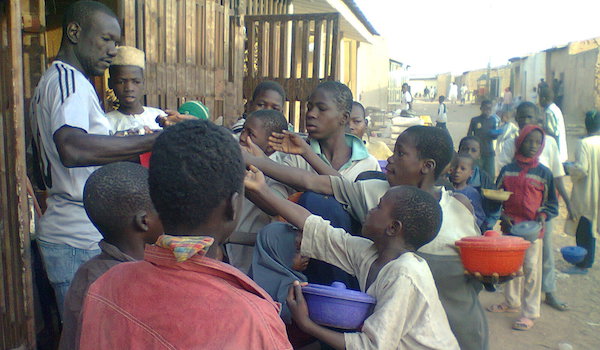Metro
NGO decries non inclusion of Almajiris in FG’s COVID-19 palliatives

The non inclusion of Almajiris in distribution of covid-19 palliatives in the country has been condemned by a group of Non Governmental Organisations (NGO), operating under the Advocates for Dan Almajiri (ADA).
The NGO made the condemnation in a statement signed by leaders of five NGOs including Plan International Nigeria, Street Child, Riplington Education Initiative (REI), Almajiri Child Rights Initiatives and ActionAid Nigeria, alleging that there is no evidence of special attention on issues affecting children, especially the Almajiris and other street children who are more vulnerable in periods of emergency.
The groups said in the statement: “As the number of the highly infectious coronavirus disease cases rise to more than 500 across Nigeria, a forum of Non-Governmental Organisations (NGOs) has called on the government to include Almajiri children in its response plan to prevent a possible outbreak among them.
“We laud the palliative measures rolled out by various levels of governments with support from the private sector, but decry the exclusion of Almajiri children who are already exposed to poor health conditions and the probability of contracting the virus, given their situation.
“According to a 2014 report by UNICEF, the Almajiris constitute 9.5 million of the country’s children within the ages of 3-14. “While it is laudable that government is investing resources to maintain law and order during the pandemic, there is no evidence of special attention to issues affecting children, especially the Almajiris and other street kids, who are more vulnerable in periods of emergency which offer a supportive environment for potential predators.”
Read also: $311M ABACHA LOOT: Forget the use of words, concentrate on utilisation, Malami says after backlash
ADA also explained that Almajiris are itinerant kids sent by their parents from far and near to Quranic teachers to mentor them through their religious knowledge across the country, adding that they are most times left to fend for themselves, surviving through street begging and scavenging.
“The Almajiri children are far removed from all major sources of information on COVID-19 and the opportunity of parental guidance on the messages and guidelines. “Implication of this is that they are not able to protect themselves and will not be able to observe any social or physical distancing or access medical services should they contract the virus”, the groups said.
They also called for the expansion and inclusion of Almajiri children in the social register in order to access food, non-food items, and cash palliatives at strategic locations close to them.
Join the conversation
Support Ripples Nigeria, hold up solutions journalism
Balanced, fearless journalism driven by data comes at huge financial costs.
As a media platform, we hold leadership accountable and will not trade the right to press freedom and free speech for a piece of cake.
If you like what we do, and are ready to uphold solutions journalism, kindly donate to the Ripples Nigeria cause.
Your support would help to ensure that citizens and institutions continue to have free access to credible and reliable information for societal development.
























